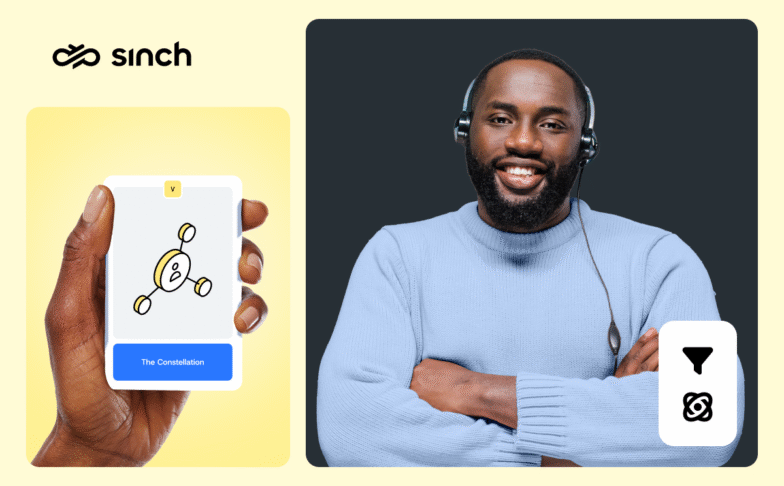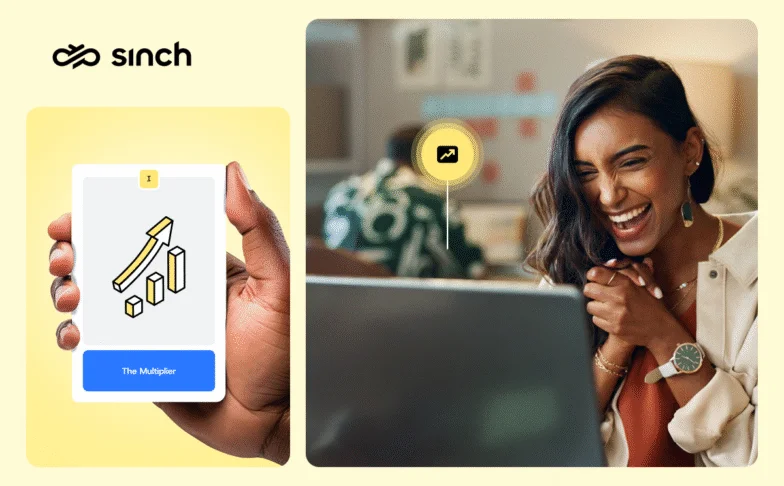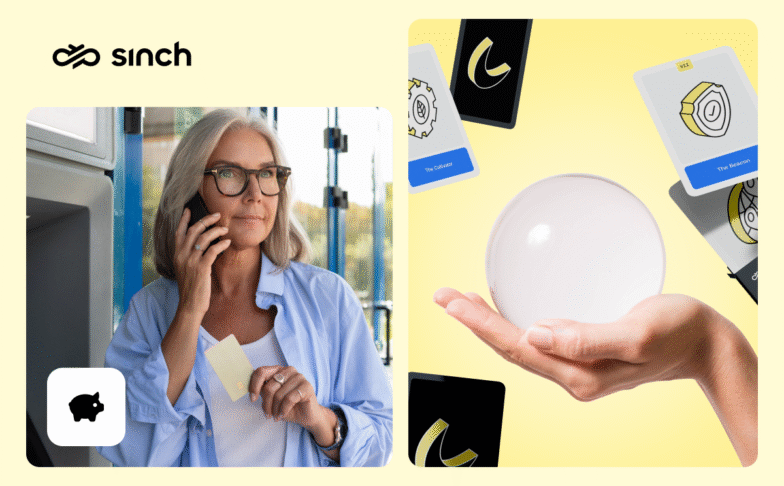Insights
The ultimate WhatsApp marketing guide to unlock business growth
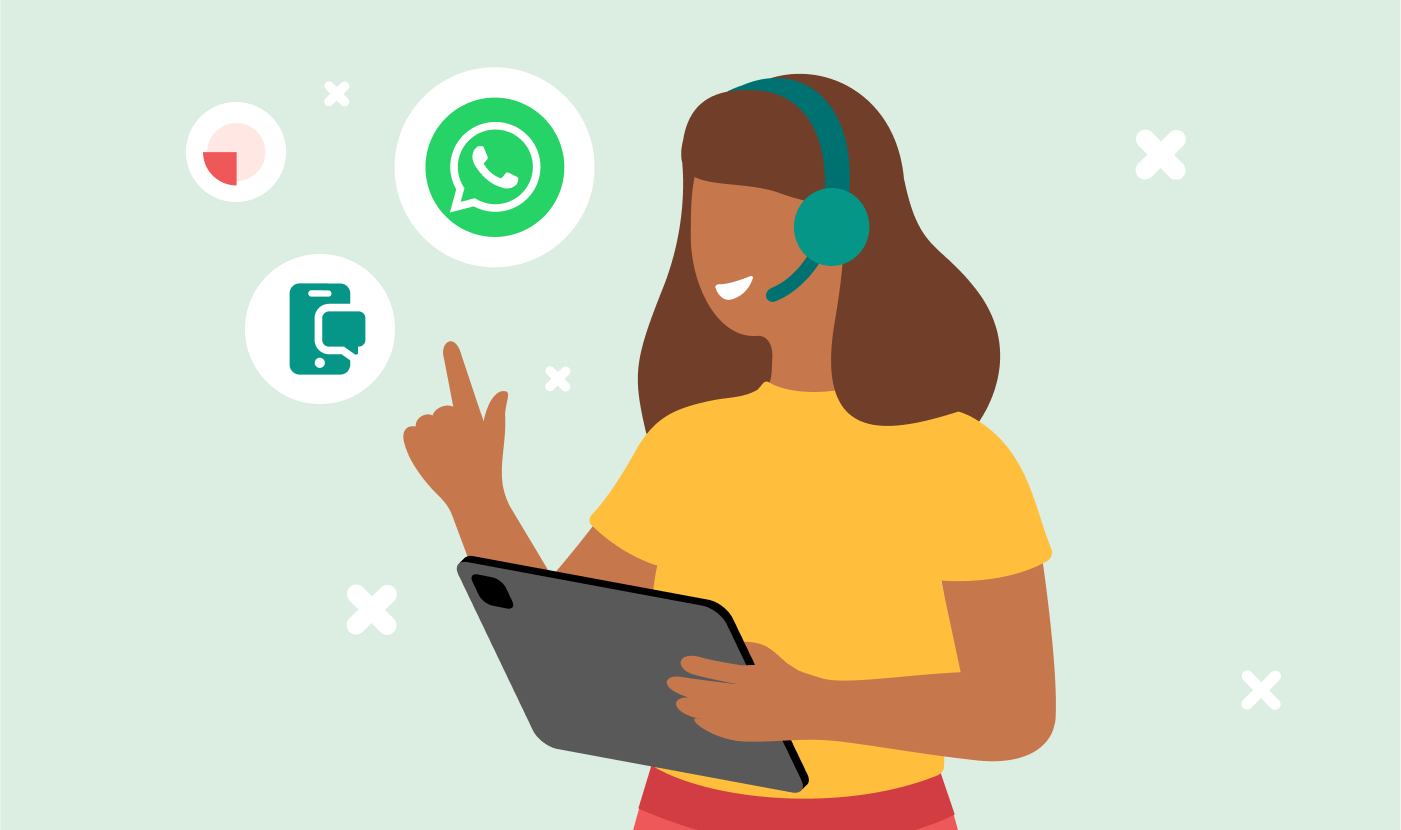
With billions of active users and billions of messages sent per day, WhatsApp is a marketer’s dream: A messaging channel that businesses can use for real-time conversations with their audience to share updates and create a genuine connection.
Looking for tips on how to get started and maximize your WhatsApp marketing efforts? This guide will get you ready to harness the full power of WhatsApp to help you communicate effectively and engage your customers on the world’s most popular messaging channel.
Why should you be using WhatsApp for marketing?
WhatsApp isn’t just a messaging app – it’s a way for brands to establish direct, meaningful connections with their audience. WhatsApp offers brands a way to reach people on a messaging platform that they already spend a lot of time on. According to some estimates, users spend over 16 hours each month on WhatsApp. And Android users, on average, open their WhatsApp more than 900 times per month – that’s over 30 times per day.
If your customers are already using WhatsApp (and they clearly are!), then you should be using it to have conversations with them. Here are a few core benefits of using WhatsApp for marketing.
Direct, personal communication
WhatsApp is one of the most popular messaging channels around the world, so businesses can connect with their audience in a space they already feel comfortable with. Because conversations on WhatsApp are one-to-one, they’re inherently personal, immediate, and direct. Marketers can tap into that environment to foster genuine, individual connections with users.
High engagement rates
WhatsApp marketing is about more than just sending and delivering messages; it’s about having meaningful conversations. And with an impressive average open rate of 98%, WhatsApp messages are primed for direct engagement.
Keep this in mind: This high open rate reflects the willingness of subscribers to actively participate in ongoing dialogue. That’s why it’s important to keep your messages relevant and personalized to each person’s interests and preferences!
Global reach
As of February 2025, WhatsApp counts more than two billion monthly active users and is the preferred messaging app in many countries.
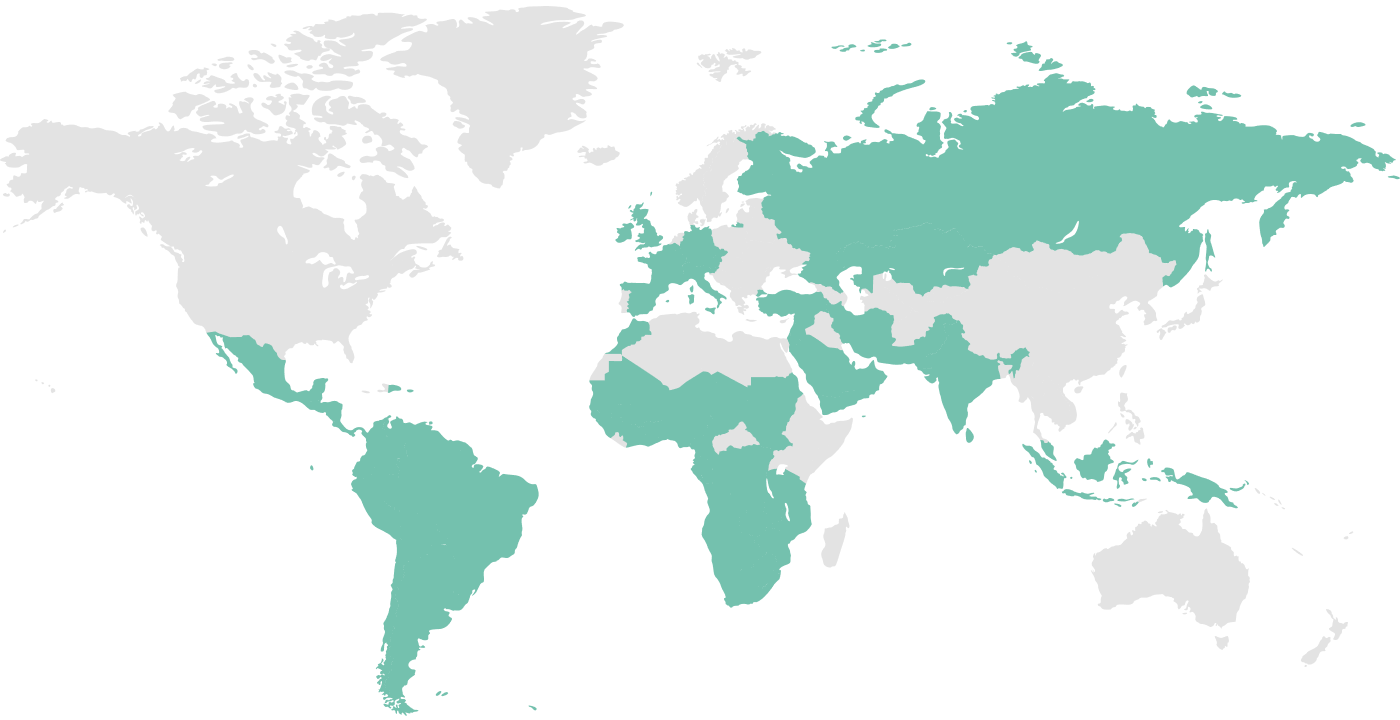
Despite its already massive reach, WhatsApp’s popularity continues to rise in use in countries like Mexico, India, Brazil, and even the U.S. But it’s not just individuals adopting WhatsApp at a quick pace – an increasing number of businesses are turning to WhatsApp marketing to captivate users and meet revenue goals.
Interactive user experience
WhatsApp is interactive by nature, with features like two-way messaging and multimedia sharing for more meaningful conversations.
WhatsApp supports several rich messaging features like images, videos, carousels, product catalogs, buttons, live locations, WhatsApp Flows, and, in some markets, even in-app payments.
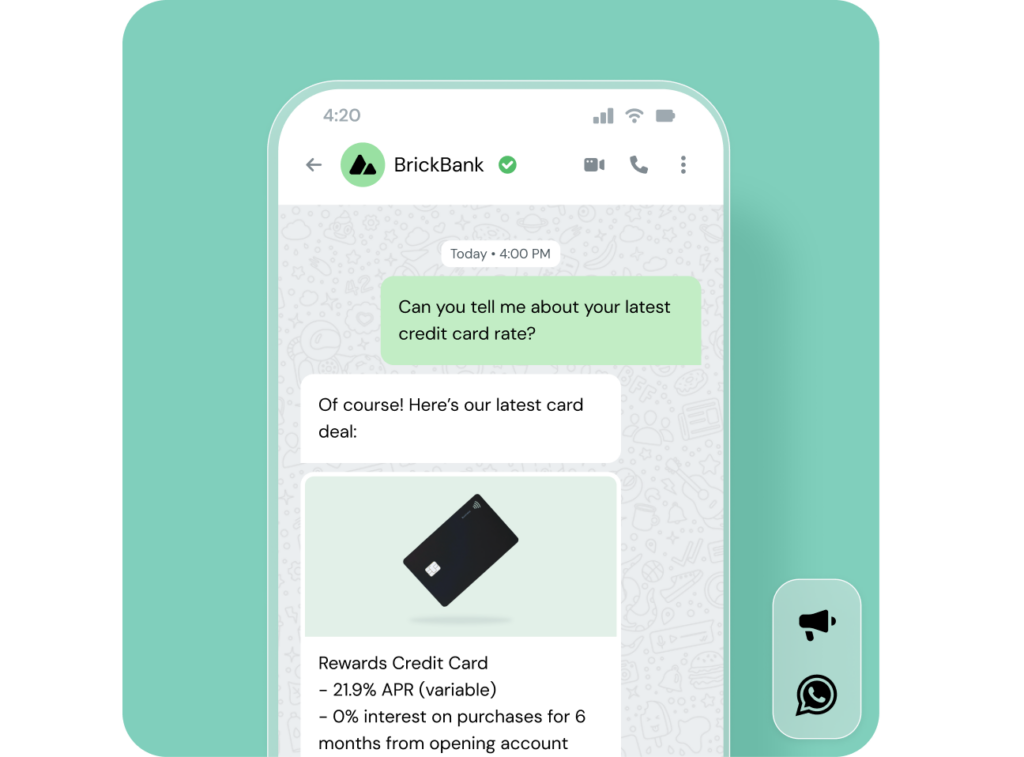
Valuable campaign insights
Businesses can also gather detailed analytics for their campaigns. The exact performance insights you get depend on the platform you use to send WhatsApp marketing messages.
For example, if you use a marketing platform that supports WhatsApp integrations like HubSpot or Salesforce, you can track metrics like delivery status, engagement, and conversions.
11 ways to use WhatsApp marketing
From content marketing to targeted promotions to sales-led motions: WhatsApp supports any digital marketing use case you can think of. Here are some ideas to get you started.
Right now, there are special restrictions for WhatsApp marketing in the U.S. in place. WhatsApp has temporarily banned businesses from sending templated marketing messages to users with a U.S. number. However, there are still ways for you to do WhatsApp marketing. Jump to our section on WhatsApp marketing in the U.S. to find out what that means for you.
1. Direct marketing
Once users have opted in to receive WhatsApp marketing messages from you, you can send out special offers, promote new products and services, or advertise seasonal deals to interested subscribers.
2. Regular updates
Send bite-size newsletters via WhatsApp to keep your subscribers updated. Depending on your target audience, you could send behind-the-scenes videos, how-to tutorials, recipes, hacks, news, or quizzes.
3. Highly targeted campaigns
Use WhatsApp’s detailed analytics to learn what your customers really want, and send out targeted campaigns based on previous purchases or interests they’ve expressed.
4. Flash sales
Most WhatsApp messages are opened within minutes after arriving. That makes them a perfect channel for timed campaigns like flash sales or last-minute deals.
5. Event invites
Send subscribers invites to events or webinars, and let them RSVP directly through the app.
6. VIP deals
The personal one-on-one exchange on WhatsApp fosters very loyal customer relationships. Sending out special offers to your most committed customers is a great way to thank them for it.
7. Personal consultations
From individual style consultations to personal beauty evaluations: WhatsApp’s in-app video and call features are perfect for in-depth sessions with potential customers.
8. Abandoned cart reminders
Abandoned shopping carts are a constant pain for e-commerce companies. Reduce your abandoned cart rate by sending online shoppers a friendly reminder on WhatsApp that they won’t miss.
9. Polls, surveys and quizzes
Gather customer insights and foster engagement by sending polls, surveys, or creating quizzes directly on WhatsApp. It’s a fun way for consumers to interact with your brand, and you’ll learn a lot about your customers.
10. Re-engagement campaigns
Re-engaging customers on WhatsApp is as simple as sending them a new message in an already existing chat thread. You can simply pick up where you left off to let customers know that one of their favorite items is back in stock, offer a service upgrade, or to inform them of a new product they might be interested in.
11. Feedback and reviews
Use the high interaction rates on WhatsApp to gather valuable feedback or reviews.
Special rules for WhatsApp marketing in the U.S.: What you need to know
The U.S. is currently the fastest growing WhatsApp market. This has come with some growing pains, so WhatsApp has set special limitations to WhatsApp marketing in the U.S.
Since March 2025, businesses can’t send templated marketing messages to WhatsApp users with a U.S. phone number.
Does that mean you can’t do any marketing on WhatsApp anymore in the U.S.? Not quite, as WhatsApp expert Product Manager Partner Integrations at Sinch, Bipin Patel, explains.
“Businesses can still send marketing content to U.S. consumers using free-form messages in an open service window. Of course, this means that a user has to contact a business first.”

In other words, if users reach out to you on WhatsApp, your responses can include promotional content. However, this only works if customers have sent you a message first.
So, businesses have to start thinking about incentivizing U.S. users to reach out to them on WhatsApp.
Think about promoting your WhatsApp business contact, so users know they can reach you on that channel. For example, you could add your WhatsApp number to your social media bios, promote your WhatsApp contact through click-to-WhatsApp ads, set up a WhatsApp chat on your website, include links or QR codes to your WhatsApp account on landing pages, email signatures, and even on flyers.

You just have to get more creative to draw users in. In the end, that should be your goal as a company anyway: creating meaningful experiences that matter to consumers.
“Basically, what we’re seeing not only in the U.S., but also in other markets, is that WhatsApp is going back to its conversational roots, moving away from intrusive one-way blasts to interactive chats that really bring value to users and engage them with businesses.”
Monika also points out that businesses can use other types of WhatsApp messages like transactional notifications (important updates and alerts, one-time passwords, order confirmations, etc.) and customer support messages to create brand awareness, foster customer engagement with U.S. consumers and build loyalty.
“Once users already know you and feel comfortable interacting with you on WhatsApp, they’ll also start reaching out to you. This might not give you the immediate communication of direct marketing, but it builds stronger and longer-lasting customer relationships.”
And finally, remember that WhatsApp isn’t the only engaging mobile messaging channel for reaching U.S. consumers. RCS or Apple Messages for Business (iMessage) still offer plenty of opportunities to reach users with your marketing campaigns.
Best practices: How to create successful WhatsApp campaigns
A well-planned marketing strategy is key to truly making an impact. Here are some best practices to create a WhatsApp marketing strategy that engages and converts!
Don’t just blast, create campaigns that last
Keep in mind that WhatsApp is a conversational marketing channel. This means: Consumers want to actively interact with brands, rather than be blasted by one promotional message after another. If your messages don’t add value, users will lose interest or even report you as spam – which can get you blocked from WhatsApp.
That’s why you should be very thoughtful when it comes to direct marketing on WhatsApp – even in markets where WhatsApp’s restrictions on sending marketing messages aren’t as firm as in the U.S.
“WhatsApp marketing is all about quality over quantity. Instead of blasting a broad group of users, segment your audiences and use data from past interactions to send messages to engaged users first.”
Create compelling, personalized content
Keep in mind the kind of content that works well on WhatsApp – try using rich messaging capabilities like images or videos or interactive message types like buttons, so users can easily share feedback. Or you could use two-way messaging capabilities like polls, quizzes, and surveys, so your audience can be actively engaged and involved.
You could also create personalized videos or GIFs that address specific pain points or challenges, and then encourage them to take the next step in their journey with your brand.
Leverage customer data to personalize your messages with names, preferences, and relevant recommendations. The timelier and more personalized your messages are, the more your audience will engage and want to hear from you more in the future.
Just keep a few things in mind to help you captivate your audience:
- Branch out from just sending promotional messages and focus on educating and entertaining.
- Don’t forget that you’re using a mobile channel, so keep your messages short and sweet.
- Use multimedia, like pictures, emojis, GIFs, or videos.
- Consider message frequency! Find the right balance of sending too many messages or too few. In large part, the frequency that’s right for your audience will depend on their industry.
Take advantage of WhatsApp automations
From integrating WhatsApp chatbots to scheduling your WhatsApp marketing messages through tools like HubSpot or Salesforce (Marketing Cloud), there are several ways to scale WhatsApp marketing.
For instance, you could use marketing bots for lead qualification, to ask customers for preferences, or to send automated welcome messages. You can even deploy WhatsApp bots as personal shopping assistants.
When working with chatbots, also think about including an easy way for users to reach out to your business if they have questions. You could do this through a direct handover in the chat or by posting an email, phone number, or a link to a support form.
There are also other marketing automations you could use like quick replies, appointment and abandoned cart reminders, or WhatsApp Flows.
Measure and optimize
With the WhatsApp Business API, WhatsApp’s business solution for businesses that want to scale WhatsApp marketing, you’ll have access to comprehensive metrics around engagement and subscriber rates.
You could also try A/B testing on various elements of your campaign, like content or delivery timing, to make sure you get your messaging right. You should also be using results from your customer surveys to gain insights into their experiences.
These insights will help you gauge the success of your current campaign and plan for the most successful future WhatsApp marketing initiatives.
Integrate WhatsApp smartly into your omnichannel marketing
Now that you’ve gotten some ideas for how to build a successful WhatsApp marketing campaign, it’s crucial to understand how the channel can fit into your overall marketing approach. After all, you’re probably already using other marketing channels like email or social media, so you want to make sure WhatsApp becomes a well-integrated part of your omnichannel strategy.
Pro tip: WhatsApp should complement other channels like email, social, or SMS for a more cohesive marketing strategy.
Here are a few ways to make that happen:
- Promote across platforms: Promote your WhatsApp presence across other communication channels, from email, telephone support, to push notifications, and other conversational messaging channels.
- Tailor your outreach: Use WhatsApp for people who prefer it and use other channels for those with different preferences.
- Ensure unified branding: Maintain consistent branding and messaging across channels, so your customers have the best experiences.
- Integrate your data: Use data from WhatsApp alongside data from other platforms (like your CRM, or other messaging channels) to create individual customer profiles and more personalized marketing.
- Optimize and learn: Regularly assess performance metrics from WhatsApp and other channels to make your omnichannel strategy as effective as possible.
- Use an omnichannel platform: Use a marketing platform that brings together various channels like WhatsApp, RCS, and SMS – and where you can manage everything from a centralized place.
Next steps: How to get started with WhatsApp marketing
The full potential of using WhatsApp for marketing entails more than just its vast user base and great engagement rates – it’s about crafting a thoughtful strategy that aligns with your business goals, engages your target audience, and delivers an exceptional customer experience.
The best way to start sending WhatsApp marketing campaigns is to work with a reliable provider like Sinch. As an experienced and verified WhatsApp Business Solution Provider, Sinch makes it easy and safe to get started with WhatsApp marketing. Our WhatsApp platforms are fully compliant with the strictest data regulations and our experts are here to support you every step of the way.
Ready to take the next step and try it for yourself? That’s what we’re here for!
Regardless whether you’re looking for a plug-and-play WhatsApp marketing platform that doesn’t require technical expertise and that you can easily connect to tools you already use, or if you prefer a customizable WhatsApp solution for more specific or complex needs – Sinch has got you covered.

